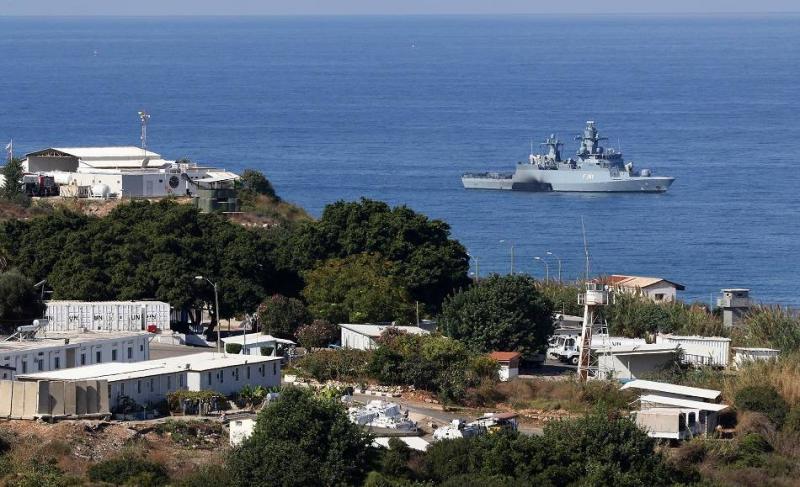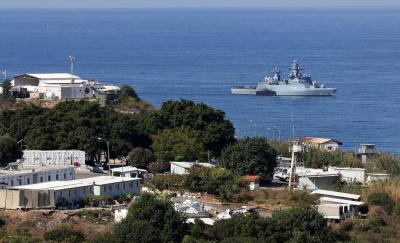The Lebanese government has extended the deadline for applications to participate in the second licensing round for oil and gas exploration in Lebanon's economic waters, three years after the initial launch, during which no companies have shown interest in investing in Lebanon. The Lebanese side is optimistic that companies will come forward following the maritime border demarcation with Israel.
The Lebanese Petroleum Authority opened a new licensing round in November 2021, offering eight maritime blocks for investment. When no one applied, the offer was renewed in June with an extension, but the investment sector and the ongoing border dispute with Israel did not entice investors. This forced Lebanese authorities to extend the deadline once again for an additional seven months.
Initially, the government approved the second round of licenses in April 2019 for only two areas of concession, but it has been postponed several times, including in 2020 due to the COVID-19 pandemic. After the pandemic, the licensing round reopened in November 2021 and was again extended in June, and is now being extended once more.
Sources from the Lebanese petroleum sector told "Asharq Al-Awsat" that the law mandates the relaunch of the licensing round through the Council of Ministers, but under the caretaker government, the law grants the Minister of Energy the authority to sign the extension, following the consultation with the regulatory authority for the oil sector, which has now occurred before the current deadline, originally set to end on December 15.
While the Lebanese government views the second round as providing an opportunity for acceptable competition among global oil and gas companies, the Ministry of Energy and Water announced that the caretaker Minister of Energy, Walid Fayyad, signed a decision based on the recommendation of the Lebanese Petroleum Authority to extend the application deadline for participation in the second licensing round for Lebanese maritime waters to June 30, 2023. The decision also outlines specific procedures for joining this round and has been published on the authority's website and in the official gazette.
Lebanon's economic waters are divided into 10 maritime blocks, two of which the Lebanese state had previously awarded: block 4 in northern Lebanon and block 9 near the southern border with Israel. A consortium of French company Total, Italian company Eni, and Russian company Novatek won a bid and drilled an exploratory well in block 4 in 2020, only to find that the quantities were not commercially viable.
Four months ago, Novatek withdrew, allowing Total to acquire a 60% share, paving the way for a third company, believed to be Qatari, to join in with share allocations of 35% for Total, 35% for Eni, and 30% for this third company.
In October, Lebanon and Israel signed a final agreement to demarcate their maritime borders after months of difficult negotiations facilitated by the U.S. Lebanese President Michel Aoun and Israeli Prime Minister Yair Lapid both signed separate letters approving the text of the agreement. The letters were delivered to U.S. mediator Amos Hochstein at the United Nations in southern Lebanon without any joint ceremony.
The border dispute with Israel previously hindered investment in block 9, while the same dispute has prevented companies from investing in the new licensing round, as two of the eight blocks were located in an area contested with Israel. Additionally, two blocks in the north are in a disputed area with Syria.
Sources in the Lebanese Ministry of Energy told "Asharq Al-Awsat" that the recent interest from companies in investing in the energy sector in Lebanon's economic waters compelled the extension of the deadline, noting that no applications were received in the previous period. They indicated that the completion of maritime border demarcation with Israel "will greatly facilitate and has generated interest from companies to express their intention to invest here," without denying the difficulties that may arise in investing in blocks 1 and 2 along the maritime border with Syria, due to the ongoing dispute.
The law stipulates that a consortium of companies must consist of at least three companies, while Lebanese companies are prohibited from investing in the southern maritime block bordering Israel, designated as block 8, which includes the Qana field, under the maritime border agreement with Tel Aviv.
Despite the anticipated difficulties from the border dispute with Syria, Lebanon has opened the remaining eight blocks for investment after a visit from Cypriot officials, during which the maritime borders were finalized with Cyprus, pending resolution of the dispute with Syria. Lebanon claims that the Syrian blocks extend over 900 square kilometers into Lebanese waters, while Damascus has submitted documents to the United Nations claiming that Lebanon is encroaching on its maritime boundaries with these blocks. Attempts to initiate demarcation talks with Syria in October have failed, but Lebanese sources believe the issue will be resolved, stating that "Syria is not an enemy state, and there is diplomatic representation between the two countries, which means direct negotiation with them is possible without a mediator."




